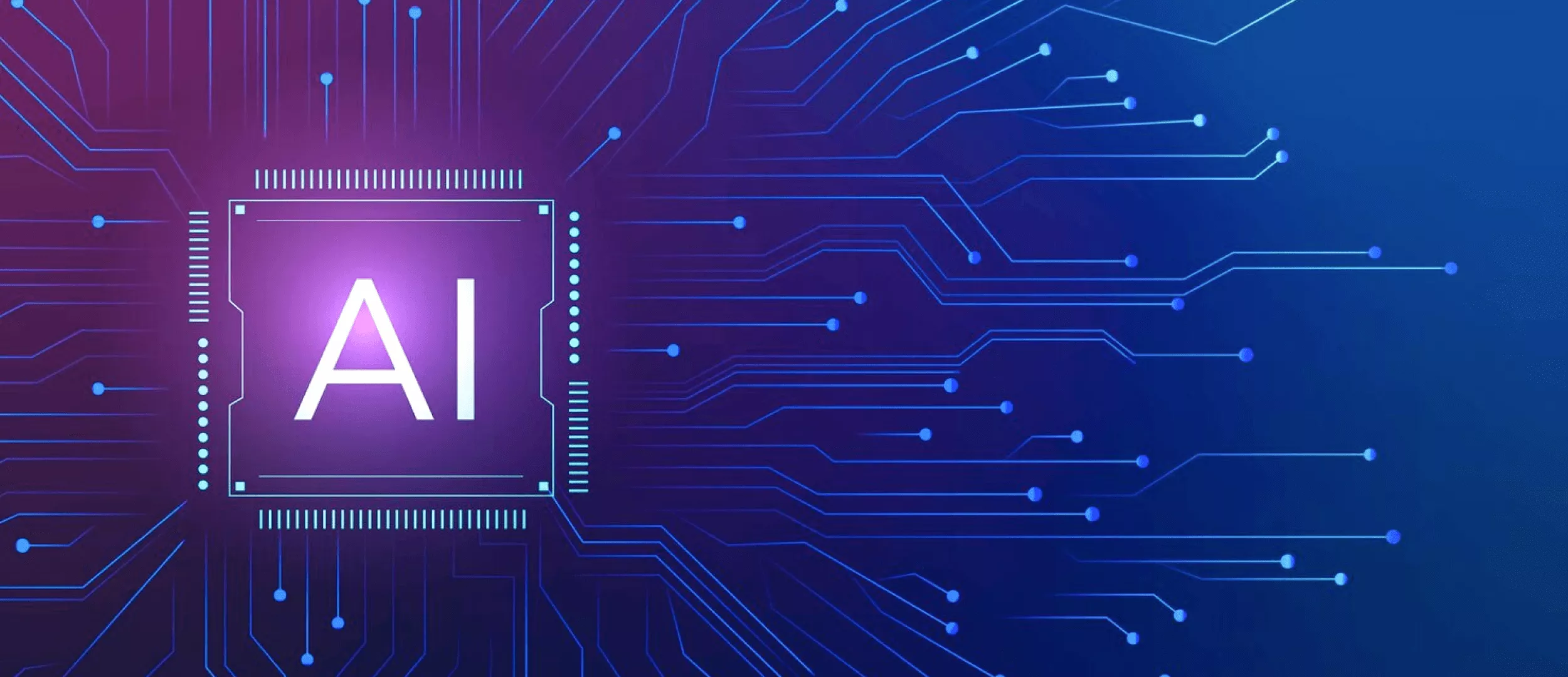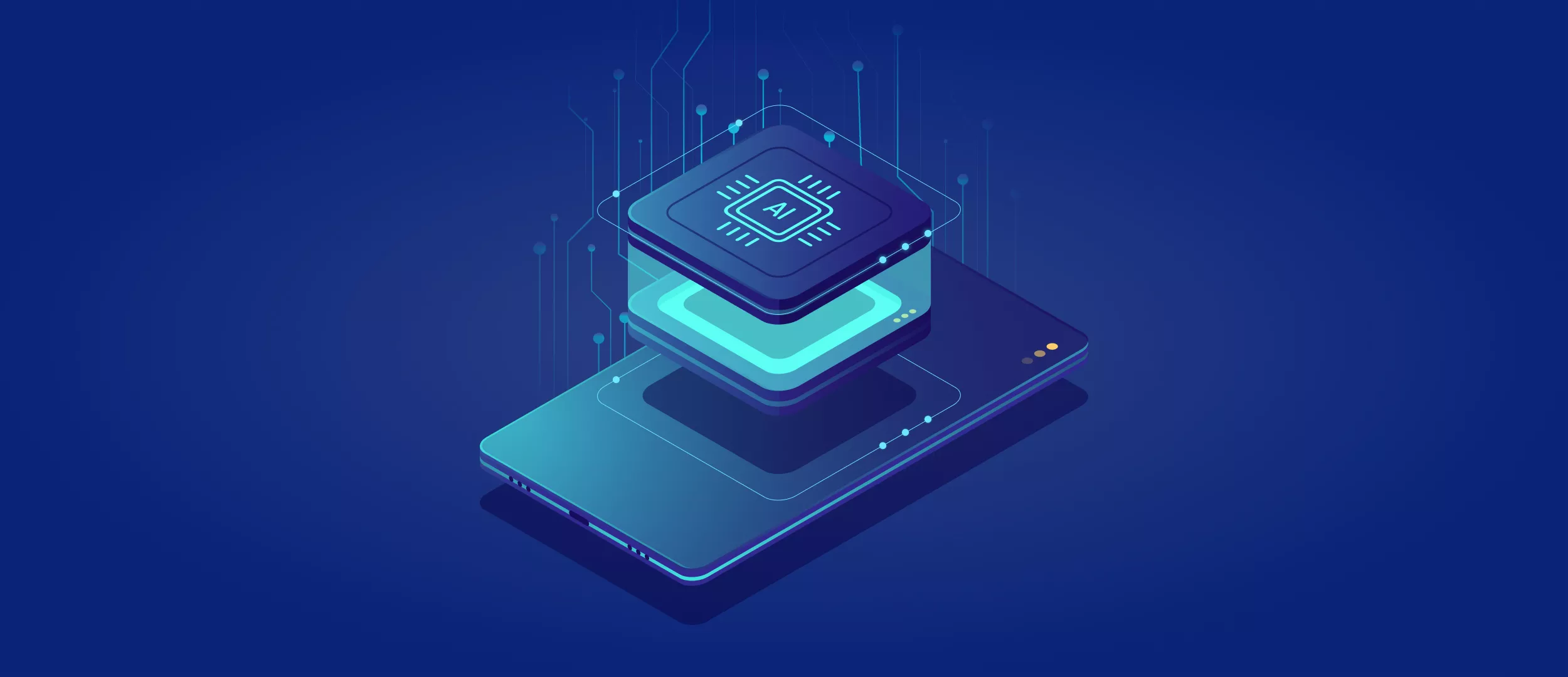
Artificial intelligence is changing the game. It's no longer just a buzzword or a sci-fi concept. AI is here, and it's ready to take your product to the next level. Imagine a mobile app that can think, learn, and adapt to your users' needs. That's the power of AI. It is the silent force behind many of the services we love and use daily, from virtual assistants like Siri and Alexa to recommendation engines on Netflix and Amazon. In fact, a personalized recommendation algorithm at Netflix makes the company $1 billion a year.
Over the next decade, the AI industry is foreseen to generate a $15.7 trillion influx into the global economy, with a year-on-year increase of no less than 120%. This phenomenal growth is driving companies of all sizes to consider how to incorporate AI into app.
So, how can you ride this tidal wave and integrate AI into your app? This blog post aims to demystify the process. It will empower you with the knowledge you need to take that leap.
AI in app development enhances user experiences by enabling features like personalized recommendations, voice assistants, and real-time data analysis. Let's explore the world of AI integration in apps, a realm where technology and creativity intersect. The world where the only limit is your imagination.
Why Companies Should Integrate Artificial Intelligence into Software Application Development
Artificial intelligence can bring numerous benefits to your app. It helps you engage users, personalize experiences, and optimize processes. Let's explore how to use AI in an app and how it can be beneficial for your business.
Increased user engagement and retention
AI can help apps understand user behavior and preferences. It learns what users like. Then it tailors the app to their interests. This keeps users coming back to your app again and again.
This allows for tailored experiences that keep users coming back. For example, a fitness app with AI could suggest personalized workout plans based on a user's goals and progress. A music app could create custom playlists based on a user's listening history. Small touches like this make the app experience more personal and sticky. It helps boost user retention and loyalty.
Moreover, AI-powered chatbots and virtual assistants can provide instant, 24/7 customer support. They can answer common questions, troubleshoot issues, and even make personalized recommendations. This enhances the user experience and reduces the workload on human support teams. This is a common example of AI integration in mobile apps.
Personalized offers
Every user is unique. So why show them all the same things? AI lets you promote offers that match each user's needs.
Imagine a travel app. Artificial Intelligence can look at a user's past bookings. Then suggest new trips similar to what they enjoyed before. The user feels like the app "gets" them. Personalized offers make users feel valued and understood. They appreciate that your app is tailored to their needs and interests.
Process optimization
Artificial intelligence doesn't just improve the user experience. It can also streamline your internal processes. Think about customer support. AI-powered chatbots can handle simple user questions. This frees up your human agents to tackle complex issues.
AI-powered tools can automate repetitive tasks like code testing and bug detection. This frees up the developer to focus on more strategic and creative work.
Artificial Intelligence in your app can also aid in project management. It can predict timelines, identify potential roadblocks, and allocate resources effectively. By analyzing past project data, AI algorithms can provide insights to help teams work more efficiently and meet deadlines.
Want a web app that does more?
Let's build a solution that's smart, sleek, and powerful.
Alina
Client Manager

Integrating AI into Your App: Step-by-Step Guide
Ready to make your app smarter? Artificial intelligence can help. Follow these steps of how to add AI to your app.
Identify needs
First, figure out how artificial intelligence can improve your app. Think about what your users need. Could AI make tasks easier or faster? Maybe it could personalize the user experience or provide better recommendations. Make a list of ways artificial intelligence could help. Here are some questions to consider:
- What tasks or features could benefit from automation or intelligent decision-making?
- How can AI improve the user experience or solve user pain points?
- What datum do you have available that AI could leverage?
Take time to brainstorm and list potential artificial intelligence use cases. Prioritize them based on feasibility and impact.
Some common AI applications include:
- Personalized recommendations
- Intelligent search and filtering
- Chatbots or virtual assistants
- Image and speech recognition
- Predictive analytics
Clearly defining your needs will guide the rest of the integration process and help you focus on how to integrate AI in app development effectively.
Review examples
Next, look at other apps using AI. See how they solve similar problems. This will give you a better understanding of what's possible and provide inspiration for your own app. Don't copy them exactly. Just use them as inspiration.
Research apps in your industry or related fields that successfully incorporate the technology. Take note of the specific features they use and how they enhance the user experience.
The insights gained from these examples will inform your own strategy.
Select a technology stack
Now it's time to choose your tools. The technology landscape is vast, but here are some key components to consider.
AI Platforms and APIs
AI platforms provide pre-built models and APIs that you can integrate into your app. They handle the heavy lifting of AI development, allowing you to focus on integration.
Popular artificial intelligence platforms include:
- Google Cloud AI Platform
- Microsoft Azure AI
- Amazon AI Services
- IBM Watson
These platforms offer a wide range of AI capabilities, from natural language processing to computer vision.
Machine Learning Frameworks
If you plan to build custom AI models, you'll need a machine learning framework. These frameworks provide tools and libraries for training and deploying AI models.
Some widely used ML frameworks are:
- TensorFlow
- PyTorch
- Keras
- Scikit-learn
Choose a framework that aligns with your programming language and has good documentation and community support.
Data Storage and Processing
Artificial intelligence relies on data. You'll need a robust data storage and processing infrastructure to support your AI integration.
Options include:
- Cloud storage services like Amazon S3 or Google Cloud Storage
- Big data processing tools like Apache Spark or Hadoop
- Databases optimized for AI workloads, such as Google Cloud BigQuery or Amazon Redshift
Ensure your data infrastructure can handle the volume and velocity of data required for AI.
Development Tools and Libraries
To streamline AI integration, leverage development tools and libraries specific to your programming language and framework.
For example:
- Python developers can use libraries like NumPy, Pandas, and Matplotlib for data manipulation and visualization.
- JavaScript developers can utilize TensorFlow.js for browser-based AI or Node.js libraries for server-side integration.
Explore the ecosystem of tools and libraries available for your chosen technologies. They can simplify the integration process.
Hire a software development team
Integrating AI is complex. You'll need a skilled development team. If you don't have expertise in-house, consider hiring a specialized AI development company that knows how to integrate AI in mobile apps. They know how to use AI in mobile app and can guide you through the process.
When hiring a development team, also consider their, communication skills and ability to work collaboratively. A good team will be able to understand your business goals and translate them into technical requirements.
Make sure to clearly define the scope of the project and set realistic timelines and budgets. Regularly communicate with your development team. Thus, you make sure that the project stays on track.
Collect and prepare data
Artificial intelligence models learn from data. They are only as good as the data they are trained on. So you'll need to gather relevant high-quality data for training. This could include:
- User behavior data from your app
- Public datasets
- Data from web scraping
- Synthetic data
Make sure to collect data from diverse sources to avoid bias. The data must be high-quality and diverse. It should cover all the scenarios your artificial intelligence will encounter.
Once you have the data, you need to prepare it. This involves:
- Cleaning. Remove invalid or incomplete data points.
- Labeling. Assign labels or categories to the data.
- Augmenting. Generate additional training examples.
- Normalizing. Scale the data to a consistent range.
- Splitting. Divide into training, validation, and test sets.
- Integrate and test the models
Now it's time to put the artificial intelligence models into your app. This is where the magic happens. Your dev team will write code to link the models with your app. They'll make sure the artificial intelligence can talk to your app and vice versa.
Testing is key. You want to be certain the AI works right in your app. Have your team run lots of tests. They should try different scenarios and see how the AI handles them. If something seems off, they'll need to fix it.
Monitor and optimize
Your work isn't done after launch. You need to continuously monitor and optimize your AI. Collect data on how users interact with the AI features to continuously improve AI integration to applications. Look for areas of improvement. Are there certain queries the artificial intelligence struggles with? Is the performance consistent? Use this data to retrain and fine-tune your models. You may need to collect additional training data over time.
Also monitor the AI's resource usage. Is it causing performance issues in your app? You may need to optimize the model architecture or use techniques like model compression. Use analytics and monitoring tools to track key metrics such as accuracy, latency, and resource utilization. Set up alerts to notify you of any issues or anomalies.
Regularly retrain your AI models on new data to keep them up-to-date and accurate. Consider using techniques such as online learning and transfer learning. They help adapt your models to changing user behavior and preferences. Treat artificial intelligence integration as an ongoing process. With regular updates and improvements, your app will keep getting smarter over time.
Challenges in AI Integrations into Apps
With numerous benefits, AI in software app development can also bring challenges. Let’s find out what you should be ready for.
Data quality and quantity
One of the biggest challenges is having enough high-quality data. AI needs vast amounts of relevant, accurate, and diverse data to learn and perform well. Gathering and preparing it takes a lot of time and resources. Poor quality or insufficient data leads to AI that doesn't work as intended.
Complexity and expertise
Artificial intelligence technologies can be very complex. Integrating them into apps requires specialized knowledge and skills. Many app developers lack experience with AI and ML. The learning curve can be steep. Mistakes in implementation can cause poor performance and user frustration. Expertise is essential for success.
Computational resources
AI models, especially large and sophisticated ones, require substantial computational power to train and run. Apps need to be able to access and harness these resources efficiently. This can be challenging, particularly for apps running on devices with limited processing power and memory. Cloud-based solutions offer scalability but have associated costs.
User Trust and Ethics
People have concerns about AI-powered apps collecting personal data and making automated decisions. Developers need to prioritize transparency, security, and ethical use of the technology. Establishing trust is crucial. Users should understand what data is collected, how it's used, and have control over it. Artificial intelligence must be unbiased, respect privacy, and align with core values.
Reliance on Third-Party Services
Many app developers rely on third-party services and APIs to add intelligence to their apps. These services can save development time and resources. Yet, they also create dependencies. If a third-party service becomes unavailable, changes its terms, or goes out of business, it can disrupt the app's functionality. Developers need fallback plans and flexibility.
The Future of AI in Software Development
As technologies continue to advance, they are poised to revolutionize the way software is designed, developed, and maintained. Ai integration in software app development processes promises to bring about significant changes.
One of the biggest changes artificial intelligence will bring is personalized software. ML will help software learn from how users behave and what they like. This level of personalization will not only improve user satisfaction but also increase engagement and loyalty.
Artificial intelligence will also make software more autonomous and able to make smarter choices. By using a lot of data and complex algorithms, the software will analyze tough situations. It will give intelligent suggestions or even take action on its own. This will lead to software that is more efficient and effective, needing less human involvement.
While AI will automate routine tasks and augment human capabilities, it won't replace developers. Instead, it will be a powerful tool that enables developers to focus on creativity and innovation. The future of software development lies in the effective collaboration between human expertise and AI's capabilities.
Conclusion
Integrating AI into your app can revolutionize user experience, automate tasks, and provide valuable insights. To ensure a successful AI integration, consider partnering with Stfalcon, a leading development company offering AI development services. With our deep understanding of artificial intelligence technologies and proven track record in app development, Stfalcon can help you seamlessly incorporate AI into your app.
In our portfolio, a Gemini-Powered AI Agent case shows how we helped a customs brokerage company automate document intake. Built in just one month, the agent understands PDFs and photos, verifies extracted data with clients, and delivers structured records to the CRM — reducing document processing time by 67%.
Don't miss out on the opportunities artificial intelligence presents. Take the first step towards enhancing your app by reaching out to Stfalcon today.
Here is more you need to know about integrating artificial intelligence into mobile apps.
FAQs on How to Integrate AI into an Application
What is AI integration in an application?
AI integration means adding artificial intelligence capabilities to an app. This could involve using AI for features like personalized recommendations, voice commands, or image recognition. The goal is to make the app smarter and more useful for users.
What data is required for AI integration?
The specific data required depends on the features you want to add. For example, a personalized recommendation system would need data on user preferences and behavior. A voice command feature would need audio data to train the AI to recognize speech. In general, artificial intelligence needs lots of relevant, high-quality data to learn and perform well. This data can come from various sources. These are user interactions, sensor data, databases, or external data feeds.
What are the steps to integrate AI into an application?
The first step is to define the features you want to add to your app. Next, gather and prepare the necessary data for training the AI models. Then, choose the right frameworks or platforms for your needs. Many cloud providers offer artificial intelligence services that can simplify integration. After that, train and test your AI models until they perform well. Finally, integrate the trained models into your application and continue to monitor and improve their performance over time. It's an iterative process that requires ongoing refinement.

 Read the full case study
Read the full case study



